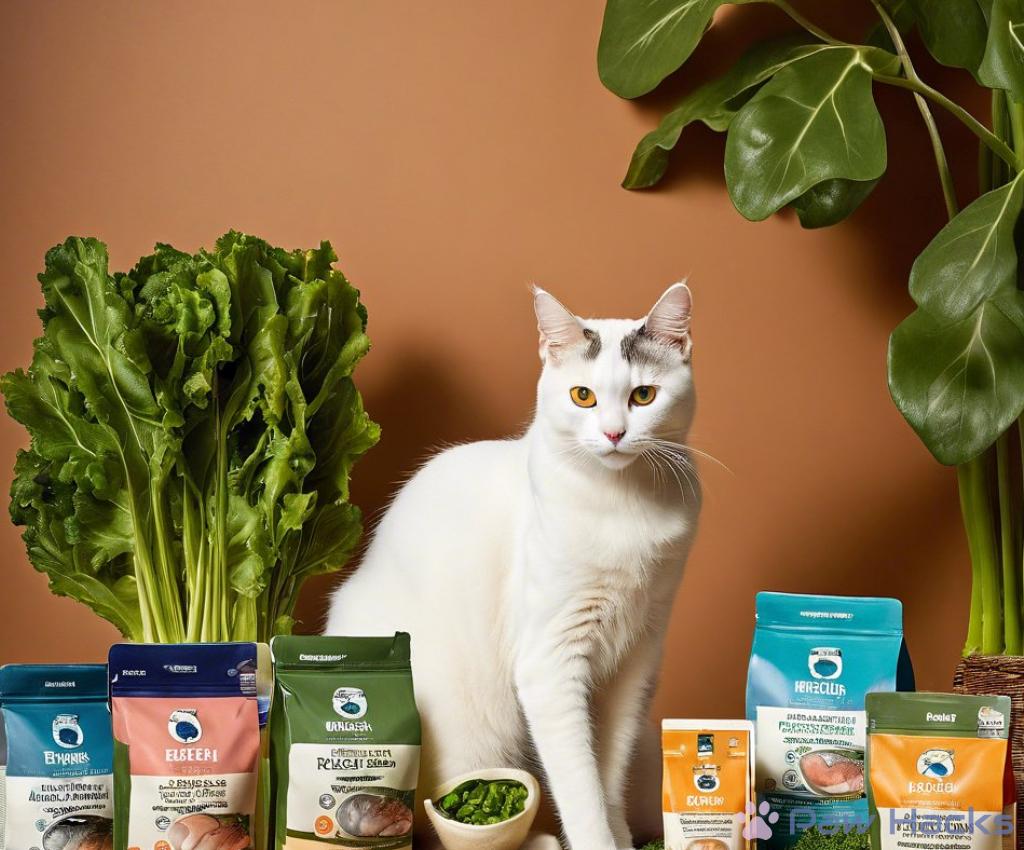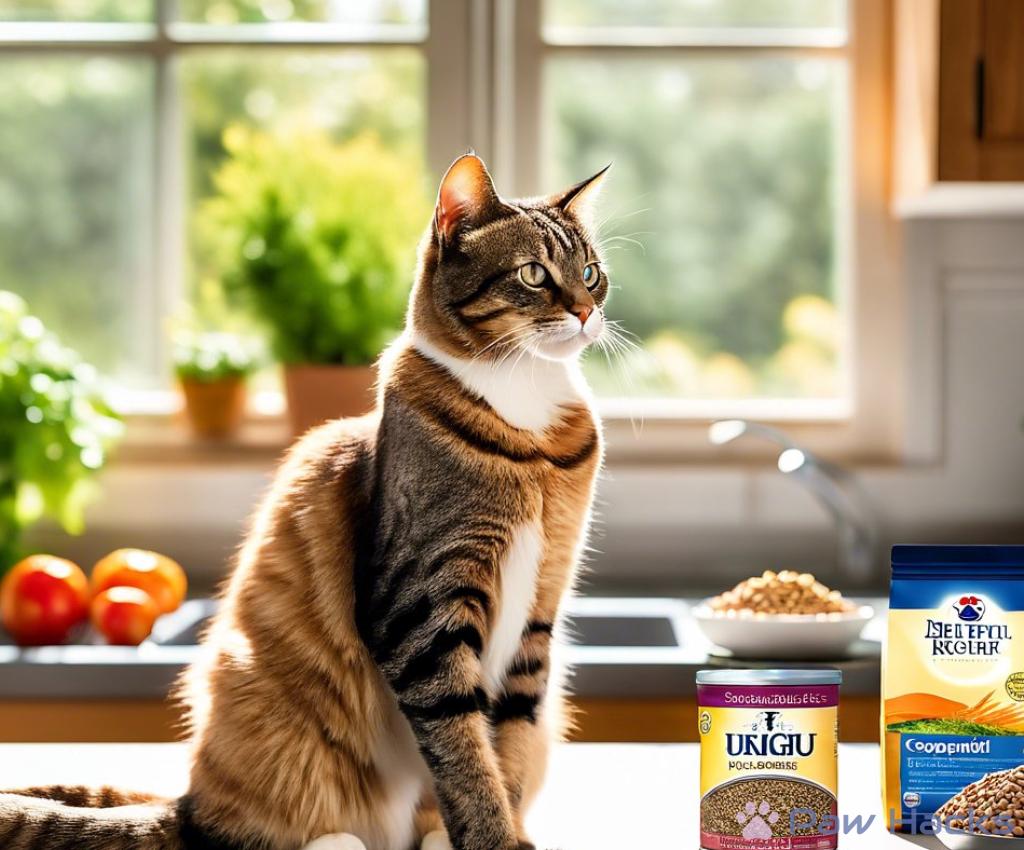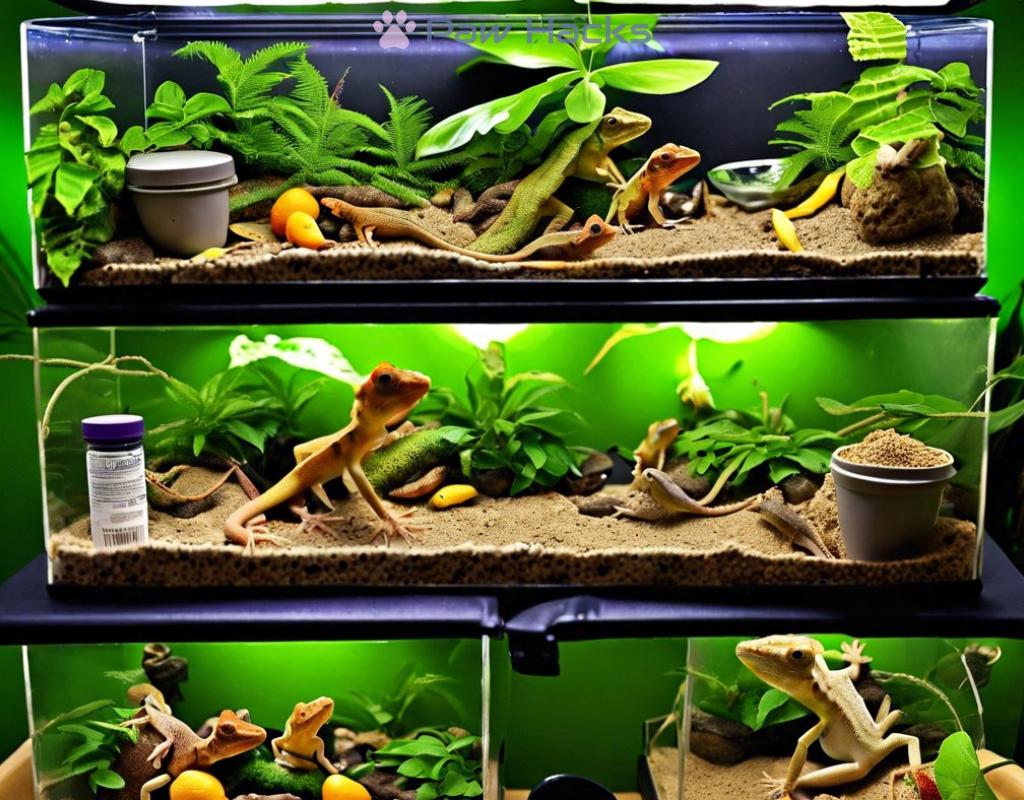Nutritional Support for Pregnant Cats
Essential Nutrients for Your Pregnant Cat’s Health

Pregnancy is a crucial time in a cat’s life, and just like humans, pregnant cats need special care and nutrition. The right balance of essential nutrients can significantly impact the health of both the mother and her kittens. Ensuring that your pregnant cat receives a well-rounded diet helps to promote healthy development and can prevent complications. Let’s explore the key nutrients that are vital for your pregnant feline friend.
During pregnancy, a cat’s nutritional requirements change. Below are the essential nutrients that should be included in her diet:
- Protein: Critical for the growth of the kittens and the maintenance of the mother’s health. High-quality protein sources like chicken, turkey, and fish are ideal.
- Fats: Healthy fats provide energy and aid in the absorption of fat-soluble vitamins. Omega-3 and Omega-6 fatty acids are particularly beneficial.
- Vitamins: Vitamins A, D, E, and B-complex are essential for overall health, immune function, and the development of kittens.
- Minerals: Calcium and phosphorus are vital for skeletal development, while iron supports blood health.
- Water: Staying hydrated is crucial, as it supports all bodily functions, especially during pregnancy.
To ensure that your pregnant cat receives the proper nutrition, consider the following tips:
- Choose high-quality commercial cat food formulated for pregnant or nursing cats.
- Incorporate wet food to increase moisture intake, which is beneficial for hydration.
- Monitor her weight and adjust feeding portions as necessary to avoid obesity.
- Consult your veterinarian for specific recommendations and to discuss any supplements that may be needed.
By focusing on these essential nutrients and creating a balanced diet, you can help support your pregnant cat’s health and ensure the best start for her kittens.
Choosing the Right Cat Food During Pregnancy

When it comes to nurturing a pregnant cat, selecting the correct cat food is a pivotal decision that can affect not only her health but also the development of her kittens. As her body undergoes various changes, her dietary needs will shift significantly, making it essential to choose food that is specifically designed to meet these heightened requirements. This does not only involve picking a product off the shelf; it requires a deeper understanding of the ingredients and their benefits.
Understanding Formulated Diets
Many commercial cat foods are tailored to different life stages. For pregnant cats, it is critical to opt for a diet labeled as suitable for gestation or lactation. These specially formulated foods often contain higher levels of proteins and fats, which are necessary for supporting fetal growth and providing the energy needed for the mother. Additionally, these products usually include the right balance of vitamins and minerals that are essential during pregnancy.
Ingredient Quality Matters
When evaluating cat food, pay close attention to the ingredient list. High-quality protein sources, such as real meat, should be listed as the primary ingredient. Avoid foods with vague terms like “meat by-products” or fillers like corn and wheat. Instead, look for foods that include wholesome ingredients, such as whole grains, fruits, and vegetables, which can contribute beneficial nutrients and fiber. The presence of Omega-3 and Omega-6 fatty acids is also a plus, as these contribute to overall health and promote healthy skin and coat.
| Feature | Commercial Food | Homemade Diet |
|---|---|---|
| Nutrient Balance | Specifically formulated for pregnant cats | Requires careful planning |
| Ingredient Control | Quality controlled by manufacturers | Full control over ingredients |
| Convenience | Ready to serve | Time-consuming to prepare |
While commercial foods offer convenience and are often fortified with necessary nutrients, some pet owners may prefer to prepare meals at home. If taking this route, it’s crucial to consult with a veterinarian or a pet nutritionist to ensure that all nutritional requirements are met. A well-prepared homemade diet can be beneficial, but it demands a greater investment of time and knowledge.
Transitioning to New Food
Once you’ve selected the appropriate cat food, introducing it to your pregnant cat should be done gradually. A sudden change in diet can lead to digestive upset. Start by mixing a small amount of the new food with her current diet, gradually increasing the proportion over several days. This slow transition will help her adapt without any gastrointestinal distress.
In summary, choosing the right cat food during pregnancy is a fundamental aspect of ensuring your feline friend and her kittens receive optimal nutrition. By focusing on high-quality ingredients and balanced formulations, you can help pave the way for a healthy pregnancy and a thriving litter.
Hydration Matters: Keeping Your Pregnant Cat Well-Watered
Ensuring that your pregnant cat maintains proper hydration is just as crucial as providing her with the right nutrients. Water plays a vital role in the overall health of both the mother and her developing kittens. Adequate hydration supports numerous bodily functions, including digestion, nutrient absorption, and even temperature regulation. As the pregnancy progresses, the demand for fluids increases, making it essential to prioritize your cat’s water intake.
During pregnancy, a cat’s body undergoes significant changes, and these changes can increase her need for water. Dehydration can lead to serious complications, affecting not only the mother’s health but also the well-being of her kittens. A well-hydrated cat is less likely to experience issues such as constipation or urinary tract infections, which can be exacerbated during this critical time. It’s important to note that hydration is not solely about drinking water; it can also come from wet food, which can supplement her fluid intake.
To keep your pregnant cat well-watered, consider implementing a few strategies. First, providing fresh water daily is essential. Cats can be picky about their drinking water, so ensure that her water bowl is clean and filled with fresh water at all times. Additionally, many cats prefer running water, so investing in a pet water fountain can encourage her to drink more. Moreover, incorporating wet food into her diet can significantly boost her hydration levels since it contains a high percentage of moisture. This is particularly beneficial for pregnant cats, as it not only helps with hydration but also provides essential nutrients.
Lastly, monitor her drinking habits closely. If you notice any changes in her water intake, such as drinking less than usual, it could be a sign of an underlying issue, and you should consult your veterinarian. By making hydration a priority, you can help ensure that your pregnant cat remains healthy and vibrant throughout her pregnancy.
The Role of Supplements in Feline Pregnancy Nutrition
As expectant mothers, pregnant cats require an array of nutrients to support their health and the development of their kittens. While a balanced diet is crucial, many pet owners wonder if supplements can further enhance their feline’s nutrition during this vital stage. Understanding the role of supplements can help ensure that your pregnant cat receives comprehensive nutritional support to foster a healthy pregnancy.
Supplements can play a significant role in filling nutritional gaps that may arise from a cat’s diet. For pregnant cats, certain vitamins and minerals are essential for fetal development and the overall well-being of the mother. For instance, calcium and phosphorus are critical for the formation of strong bones in kittens, while Omega-3 fatty acids contribute to the development of the nervous system. These supplements can be especially beneficial if your cat is not receiving adequate amounts from her regular food.
It’s important to approach supplement selection with caution. Not all supplements are created equal, and over-supplementation can lead to adverse health effects. Consulting with a veterinarian is the best way to tailor a supplement plan to meet your pregnant cat’s specific needs. Your vet can guide you in choosing high-quality products that are safe and effective. Look for supplements that are specifically designed for pregnant or nursing cats, as these will typically provide the right balance of nutrients without the risk of excess.
In addition to conventional supplements, many pet owners are turning to natural alternatives, such as fish oil for Omega-3s or probiotics to support gut health. These options not only enhance nutrition but may also improve your cat’s overall health and digestion during pregnancy. Remember, each cat is unique, and what works for one may not be suitable for another. Careful observation and regular veterinary check-ups will help ensure that her nutritional needs are being met throughout her pregnancy.
Monitoring Weight Gain: Ensuring a Healthy Pregnancy for Your Cat
Monitoring your pregnant cat’s weight gain is a crucial aspect of ensuring her health and the well-being of her developing kittens. During pregnancy, a cat will naturally gain weight, but the rate and amount can vary significantly between individuals. By keeping a close eye on her weight, you can identify any potential issues early on, ensuring that both the mother and her kittens receive the support they need for a healthy pregnancy.
As your cat progresses through her pregnancy, understanding the expected patterns of weight gain is essential. Generally, a pregnant cat should gain between 1 to 2 pounds during the entire gestation period, with an average of about 4% of her body weight increasing each week. However, factors such as the number of kittens she is carrying and her overall health can impact these numbers. Regular weigh-ins can help you observe these trends and manage her diet accordingly.
Tracking these changes not only helps you ensure that your cat is gaining weight appropriately but also allows you to notice any sudden drops or excessive gains. If your cat is gaining too much weight, it may lead to complications such as gestational diabetes or difficulties during labor. Conversely, insufficient weight gain could indicate nutritional deficiencies or health issues that need addressing.
Creating a weight monitoring routine is simple and can be done at home. Start by weighing your cat once a week using a reliable scale, recording her weight in a journal or digital app for easy tracking. Make sure to weigh her at the same time each week, ideally in the morning before feeding, to maintain consistency. Visual cues can also help; observe her body shape and size changes, as the physical appearance can offer additional insights into her health.
Alongside tracking weight, consult your veterinarian regularly to discuss her progress. Your vet can provide personalized advice on diet adjustments or any necessary interventions based on her weight trends. In cases where complications arise, timely veterinary intervention can make a significant difference.
By focusing on a healthy weight gain trajectory and establishing a proactive monitoring routine, you can contribute significantly to your pregnant cat’s health, ensuring she thrives during this vital period.
Share this content:



